Expert panel shows opportunities for SynBio in Australian agrifood sector
Australian diners will soon have the option to tuck into a piece of meat grown from animal cells in a laboratory rather than a paddock. Synthetic biology, or SynBio, is also helping to engineer ingredients for plant-based proteins, design crops for fuel production, and the development of insecticides with the help of bespoke microbes.
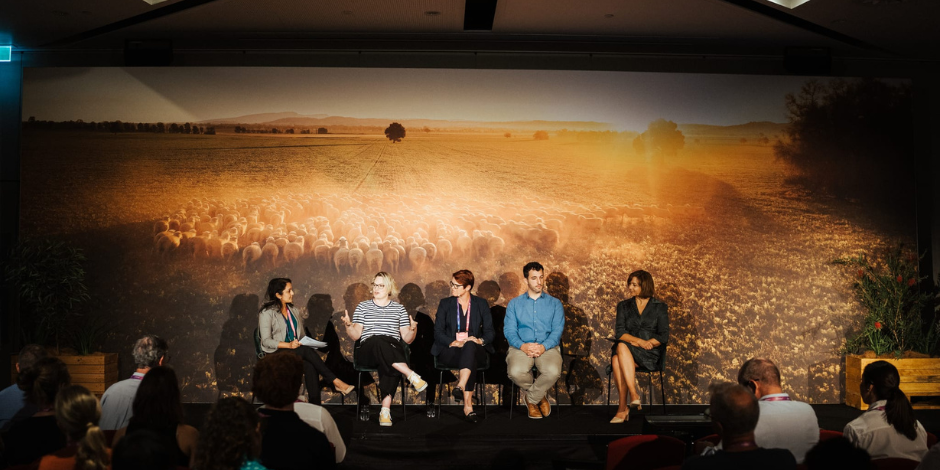
Key players in the industry came together for a lively panel discussion at evokeAG. 2023, claiming there’s a huge opportunity for growth of SynBio in Australia, and rather than competition, it’s complementary to traditional farming.
SynBio: modern engineering of biology
Dr Natalie Curach, from biotechnology company Ginkgo Bioworks, has been at the forefront of the growth of SynBio in Australia and describes it as the modern engineering of biology.
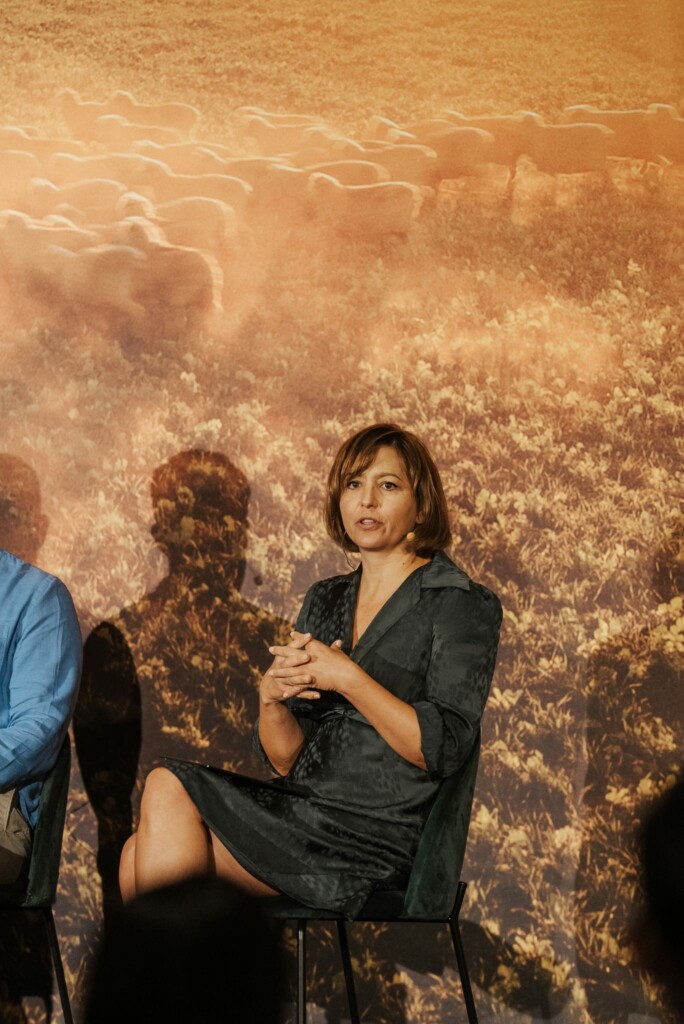
“It’s engineering cells for a bespoke function,” she told the evokeAG. 2023 delegates. “We can apply this to all sorts of things…For instance, biologics for pesticides, alternative proteins, things like hormones added to cell culture, things like heme [a precursor to hemoglobin] added to plant-based burgers so that you have that meaty flavour in the product,” said Natalie.
Natalie now leads the Australian-based operation for Ginkgo Bioworks, a Boston-based biotechnology company that’s expected to generate more than USD $480 million in revenue this year.
“SynBio is big business,” she said. “Companies come to us to develop gene technologies. From large multinationals all the way down to start-ups and spin-offs.”
Foodtech start-up Vow raised almost USD $50 million in Series A funding last year, with plans to sell premium cultured meat products into Singapore, Australian and United States markets.
RELATED: Vow lands $49.2m ahead of its cultivated quail launch in Singapore
Speaking as part of the panel, Vow CEO and Co-Founder, George Peppou, explained his philosophy on growing meat from animal cells.
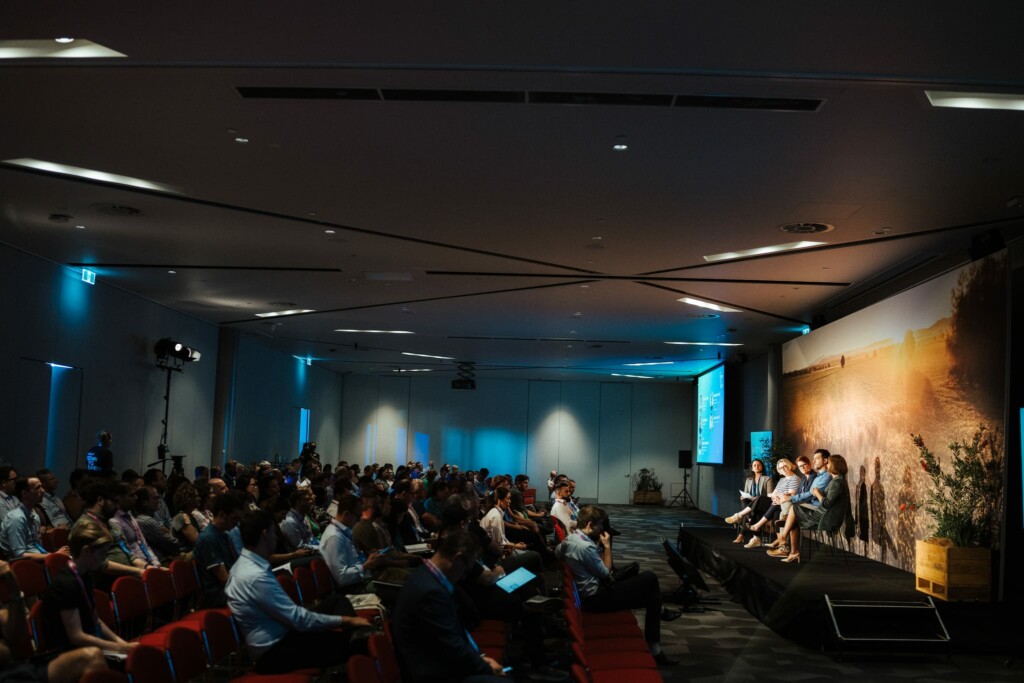
“We use this new technology to invent new types of things that otherwise wouldn’t exist,” he said. “That are tastier or more nutritious or offer functionality that meat from traditional farming can’t offer,” said George.
RELATED: Animal-free fermented fats and oils give alternative proteins a kick of flavour
Chief Science Officer at plant-based meat company v2food, Dr Lisa Ronquest-Ross, said SynBio is helping in its manufacturing process.
“We’ve developed our own technology using algae to solve the challenge of how plant-based meats change colour from a raw to a cooked state that is actually simple for consumers to understand and cook them like they would meat,” Lisa said.
“This new ingredient has the right time and temperature profiles to actually change colour similar to how meat changes colour, so you know when you’ve cooked your plant-based burger.”
Competition or complementary to traditional agriculture
Vow’s George Peppou doesn’t believe cultured-meat is a competitor to traditional production.
“We make entirely new things that can’t be produced using animal agriculture, almost exclusively focused on being exported from Australia,” George said.
“Rather than seeing us as a competitor to the foods that you [farmers] produce, we see ourselves as a complement.
“We are going to be a major purchaser of feedstocks like sugar, and like plant derived amino acids. This becomes a complementary manufacturing industry.”
RELATED: Synthetic biology and its place in our future food system
Lisa said plant-based meat is also complementary, given the high demand for proteins.
“The reason for the shift still remains population growth, and we’ve got to find ways to feed the planet and feed people sustainably,” she said.
“We actually also work with the meat industry to be able to produce our products, because the processing capabilities sit within the meat industry, the networks and the infrastructure.”
CEO of Cauldron, Michele Stansfield, said the company aims to build SynBio manufacturing capability in Australia, and these large-scale facilities will be in regional areas.
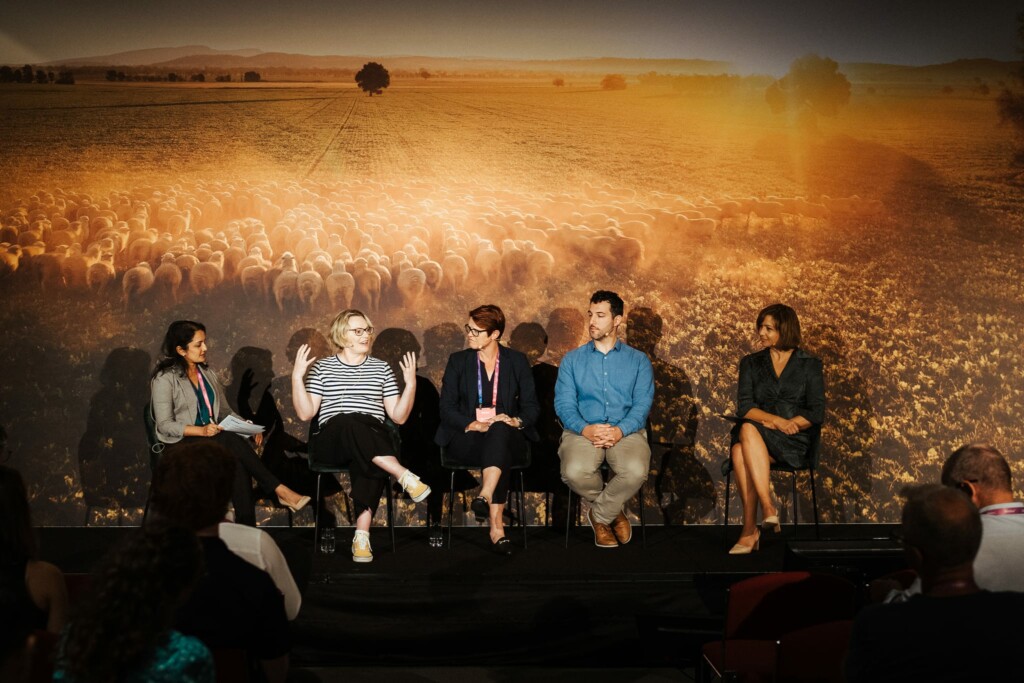
“We need to be working with agricultural companies, our feedstock, what we’re using to grow the microbes will be coming from the agricultural industry and it will help them diversify,” she said.
Natalie told delegates the food market is just one example of where SynBio is being used.
“Companies come to us (Ginkgo Bioworks) looking for biological solutions to challenges, may also be looking for sustainable products in their range,” she said.
The company is also partnering with Bayer to develop biological solutions in areas such as nitrogen optimisation, carbon sequestration, and next generation crop protection.
“Now we have 200,000 soil microbiome genomes to work with,” Natalie said. “There’s ways we can adopt very high tech, engineering and biology that also works within the commercial framework and the regulatory frameworks of an agriculture system.”
What’s needed to support growth of SynBio in Australia
Vow is seeking approval for its cultured meat from Australia’s food safety regulator, and hopes it might be available for adventurous foodies to try by mid next 2024.
RELATED: Australians could be eating lab-grown quail in 2024
“We’re currently going through approvals in Singapore, Australia and New Zealand and in the US as well. So, we’re working with all these different regulators around the world,” said George.
“We’ve made some very specific technical decisions to enable this process to be as smooth as possible. One of those is we don’t use any genetic modification … because that has been an additional layer of regulatory and an additional layer of consumer acceptance challenge.”
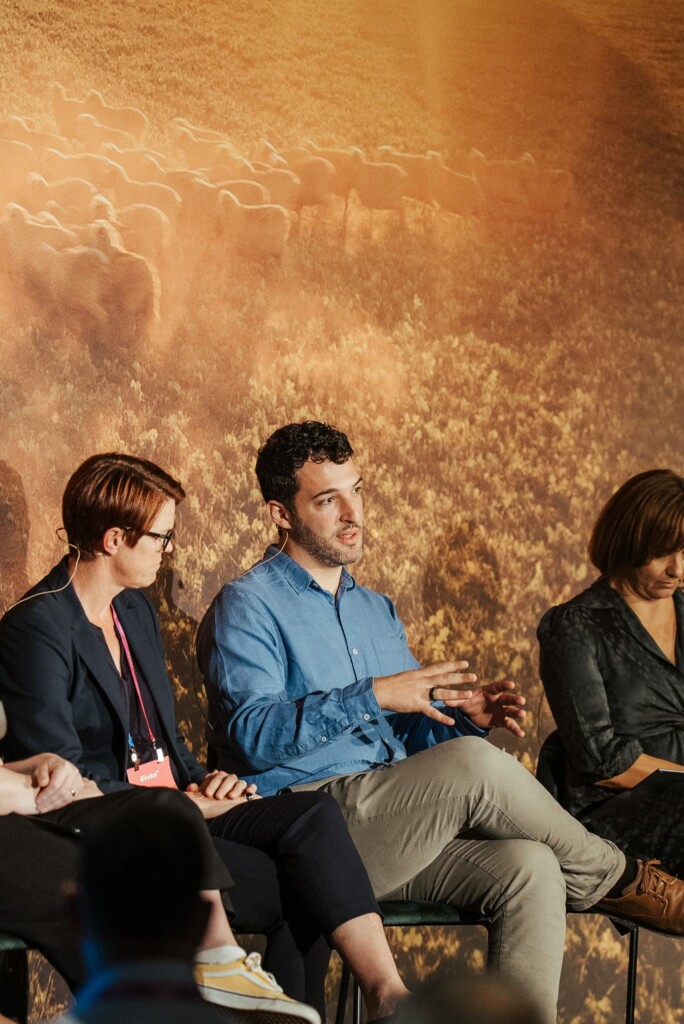
George said Australia offers many advantages for start-ups like his working in SynBio in terms of access to feedstock, education, capital to scale-up and strong trade relationships.
“But there is a question, especially one to be put at an agriculture conference, about how much you want to push back on cultured and plant-based meat, because we can do this anywhere,” he said. “If there is a will to prevent us from moving forward, we will just pick up and drop ourselves overseas.”
Michele added for SynBio to continue to grow there needs to be regulatory change and government support.
“We have such an amazing opportunity in Australia,” she said.
“Governments need to put frameworks in place that make everyone want to come to Australia. We have the opportunity to do this at the lowest cost, we can protect the IP (intellectual property), we’ve got great geopolitical positions, but we need the regulatory framework so that we (companies already here) don’t leave, and more people come.”
Dr Natalie Curach, Ginkgo Bioworks, George Peppou, Vow Foods, Dr Lisa Ronquest-Ross, v2food, and Michele Stansfield, Cauldron Fermentation participated in a panel discussion at evokeAG. 2023 in Adelaide. In the session facilitated by Dr Aparna Venkatesh, Buhler Group the panel explored the opportunities for SynBio in Australia and concluded that rather than SynBio being perceived as a competitor, it is actually complementary to traditional farming practices. Listen to the panel discussion here.
Want to hear more about the opportunities for agrifood tech in Australia? Save the date for evokeAG. 2024 on 20-21 February 2023 and sign up here for event updates and fresh stories about global leaders, farmers, startups and innovators driving collaborative change.
